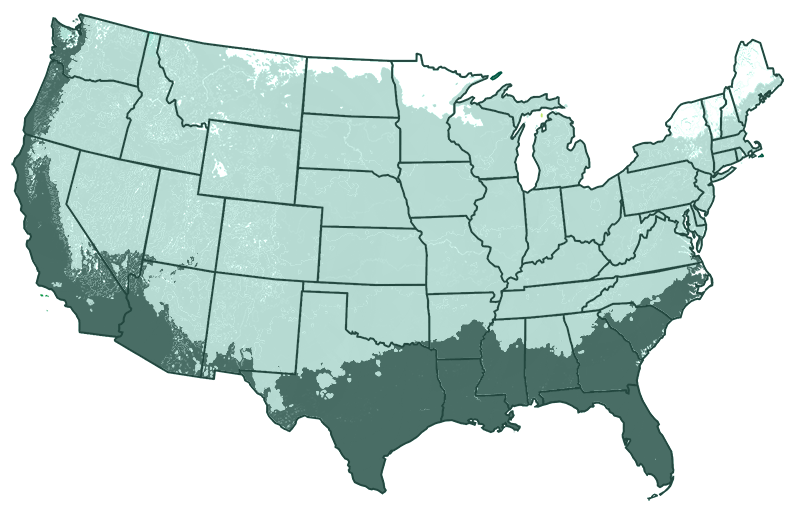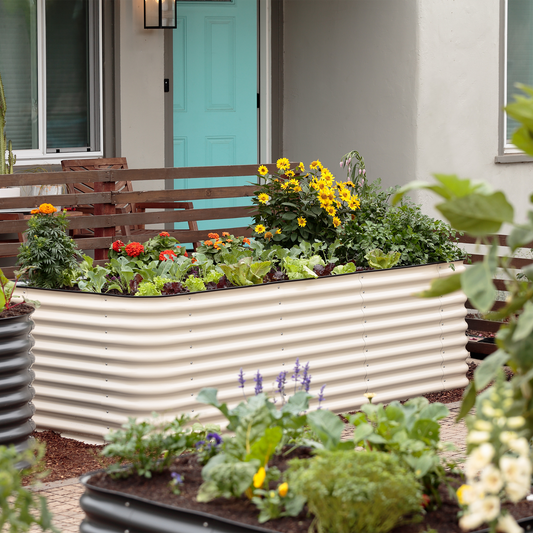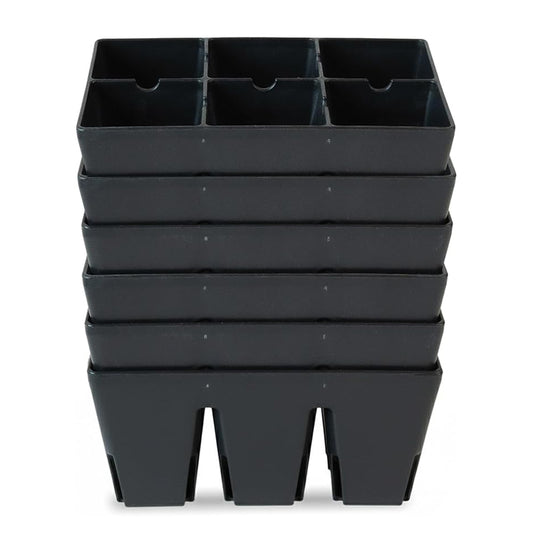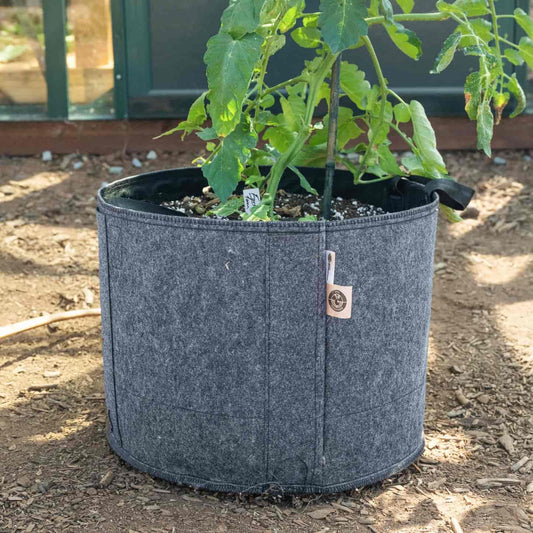


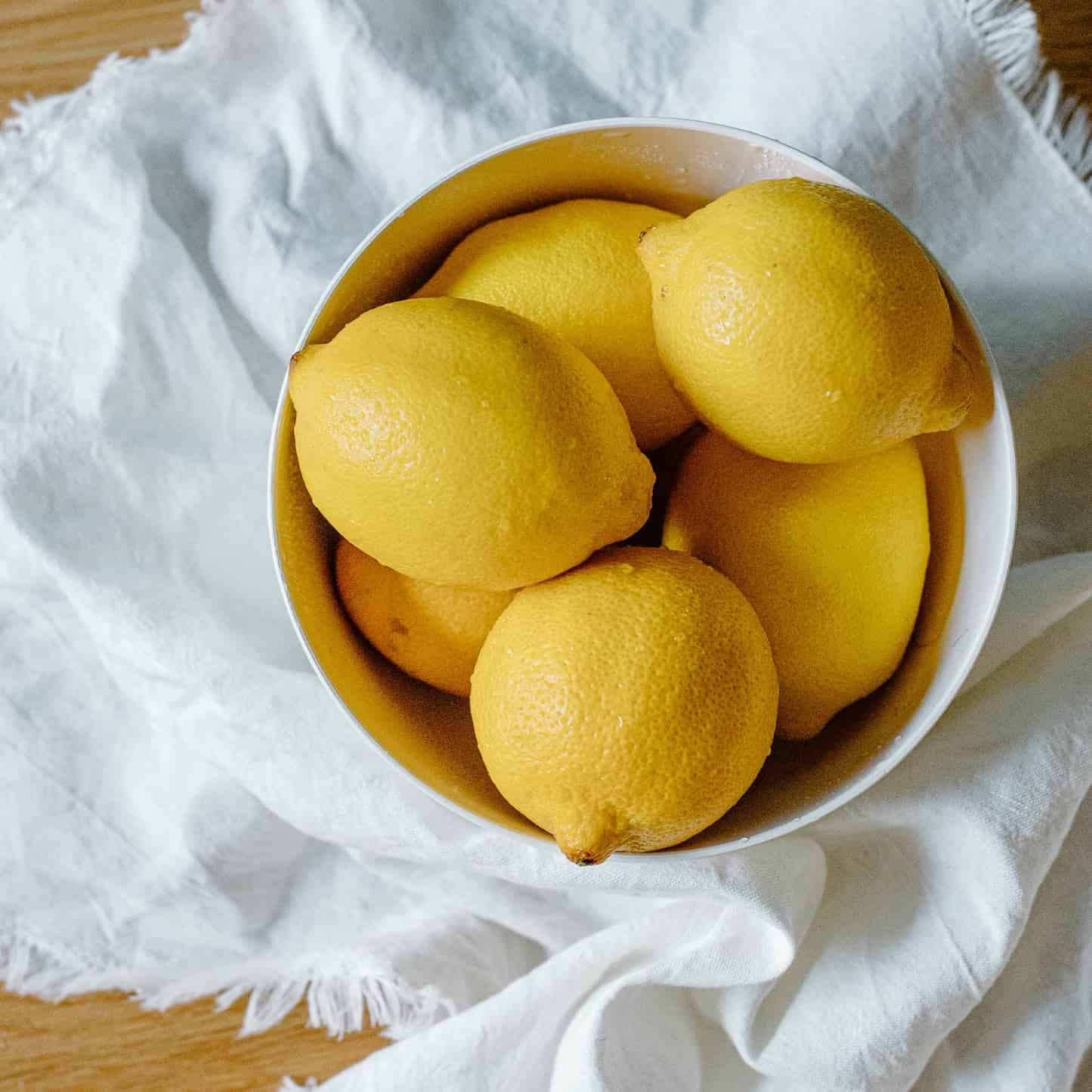
Improved Meyer Lemon Bush
View More Planting Info
Improved Meyer lemon bushes require a position in full sun to flower and fruit successfully. Aim for a minimum of 6 hours of direct sun, preferably more. They prefer slightly acidic soil with a pH between 5.5 and 6.5. The soil should also be well-draining to prevent root rot. When planting in containers, use a specialized citrus potting mix or coarse high-quality potting mix to boost drainage. Dig a hole twice as wide and just as deep as the root ball. Gently remove the bush from its container, loosen the roots, and place it in the hole, ensuring the top of the root ball is level with the soil surface. Backfill the hole, gently tamping down the soil to remove air pockets. Water thoroughly after planting to settle the soil around the roots. Mulch around the base to retain moisture and regulate soil temperature.
Harvesting:
Harvest when fruits begin to change color in late fall or winter, depending on climate.
Pruning:
Prune for shape and to improve health. Remove damaged, diseased, or crossing branches.
Growth:
Meyer lemon trees grow to 5-10 feet when pruned. Space 5 feet from other plants.
- Product Info
- Care and Maintenance
- Planting Care
- Growing Zone
Product Info
Mature Height: 5-10 ft. unpruned
Mature Width: 3-4 ft.
Sunlight: Full Sun
Growth Rate: Moderate
Does Not Ship To: AL, AZ, CA, FL, GA, LA, OR, TX
Care and Maintenance
Watering: Water your Meyer Lemon Bush deeply once a week, allowing the soil to dry out slightly between waterings. Adjust the frequency based on weather conditions, as more frequent watering may be necessary during hot, dry periods. Plants in containers require watering more often (typically every 2-3 days), especially in warm weather. Ensure the pot has good drainage to prevent waterlogging.
Fertilizing: Apply a citrus-specific fertilizer (slightly higher in nitrogen) according to the package instructions. Feed once per season from spring to fall, or every 4 to 6 weeks in containers. Reduce feeding in winter. Ensure the fertilizer includes micronutrients like zinc, iron, and manganese, which are essential for citrus health.
Pruning: Prune in late winter to early spring to shape and remove any damaged, dead, or crossing branches. Dead branches or those crossing into the canopy should be removed. Optionally, you may train your Meyer bush to its maximum tree size by removing citrus suckers from the base of the plant, leaving one main trunk. If keeping as a bush format, maintain it in a more compact size.
Pests and Diseases: Inspect regularly for common lemon pests like scale insects, mealybugs, white flies, and mites. Treat with horticultural oil or insecticidal soap as soon as you spot a problem. Prune away diseased branches as they appear. If in an area where citrus greening is a concern, monitor your plant for twisting, disfigured, or yellowing leaves and signs of the Asian citrus psyllid, an invasive pest that spreads the disease.
Pollination: This species is self-pollinating but may struggle to fruit if pollinator populations are low or the plant is in a protected area. If your lemon is indoors or not attracting bees, hand pollinate by gently brushing a small paintbrush or cotton swab across the flowers to transfer pollen from one flower to another.
Harvesting: Meyer Lemons typically ripen in late fall to winter. Harvest lemons when they are fully colored and slightly soft to the touch. Twist and pull gently to remove from the bush or remove with shears.
Recovery Time: Transitioning from our nursery to your home can be a bit of a shock to your plant. A short acclimation period helps it recover and reduces stress.
Climate Adjustment: Every environment is unique. Giving your plant time to adjust to the local climate, humidity, and light conditions in a shady spot will set it up for better growth and health.
How to Acclimate Your Plant: Keep the plant in its container and place it in a shady, sheltered area away from high winds. Ensure it's watered adequately – the soil should be moist but not waterlogged. Monitor the plant for any signs of distress and allow it to adjust for a few days before planting. After a few days of acclimation, your plant will be better prepared to thrive in its new home for years to come.
Planting Care
Sunlight: Plant in full sun, providing at least 6 to 8 hours of direct sunlight per day.
Soil: Plant in well-draining soil with an acidic pH between 5.5 and 6.5. In containers, choose a potting mix made for citrus plants.
Mature size: This bush can reach 5-10 feet in height, just like the tree form. To keep them compact, prune in late winter once fruiting is complete.
Climate: Meyer lemons grow best in warmer climates and are suitable for USDA Zones 8-11. Those in cooler climates can keep them indoors or in a greenhouse over winter.
Thinning: Prune branches to manage size and create the desired shape. Also remove damaged or diseased branches to improve growth.
Location: Plant in a sunny position in well-draining soil, avoiding areas where water collects after rain. These bushes are also suitable for planting in containers.
Watering: Water once per week in the ground and every two to three days in containers, adjusting watering according to environmental conditions.
Pruning: Prune to maintain the bush shape and improve health by trimming damaged, diseased, or crossing branches.
Spacing: Plant at least 5 feet away from any other trees or nearby structures in your garden.
Harvesting: Harvest when the fruits begin to change color, typically in late fall or winter, depending on climate.
Pollination: Meyer lemons are self-pollinating. Encourage pollinators like bees to your garden or hand pollinate with a small brush when keeping your bush indoors.
Hardiness Zone: The Improved Meyer lemon bush is suitable for planting in USDA Zones 8-11.
Fertilizer: Feed once per season, or every 4 to 6 weeks for container plants from spring to fall, with a citrus fertilizer slightly higher in nitrogen.
Growing Zone
Grows Well In Zones: 4-11 patio / 8-11 outdoors
